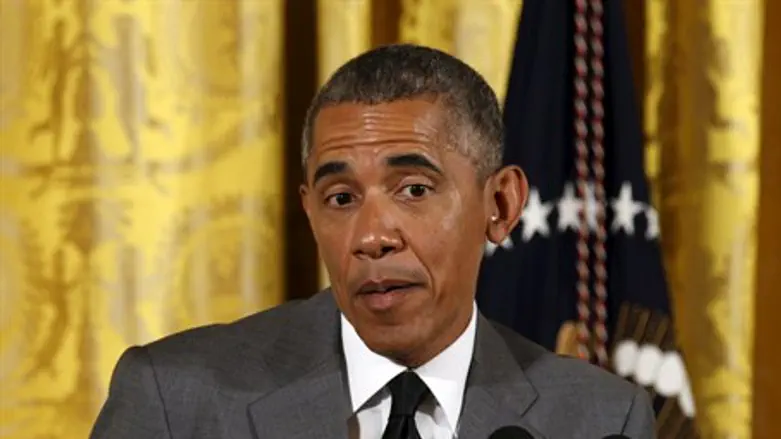
While Democrats in the Senate may have last week given US President Barack Obama backing to pass the Iran nuclear deal, two leading Republican Congressmen continued the fight this week with a stinging op-ed breaking down Obama's claims regarding important side deals.
The op-ed, published in the Independent Journal Review on Monday by Congressmen Peter Roskam (R-IL) and Congressman Mike Pompeo (R-KS), focuses on the classified side deals between Iran and the International Atomic Energy Agency (IAEA) that were kept secret from Congress. Currently there is a push in the House to have the Congressional review of the deal restarted due to the lack of access to the side deals.
The first "myth" of the Obama administration that the two Congressmen sought to debunk was the claim that "there are no side deals."
"State Department spokesman John Kirby’s assertion that, 'there’s no side deals. There’s no secret deals between Iran and the IAEA that the P5+1 has not been briefed on in detail,' is just not true," they wrote. "Assistant Secretary of State Julia Frifield disproved that claim, writing to House Members, 'The Roadmap refers to two ‘separate agreements’ between the IAEA and Iran.'"
A second claim the two addressed is that the side deals aren't important or relevant to the Iran nuclear deal. However, they argued that "these details are absolutely crucial."
"The IAEA has confirmed that the first side deal seeks to resolve longstanding questions on the possible military dimensions (PMD) of Iran’s previous nuclear research. Without an accurate baseline showing how much progress Tehran has made to date in producing a nuclear weapon, the U.S. cannot possibly measure their compliance or their present breakout time."
"The second side deal reportedly allows Iran to self-inspect the military industrial complex at Parchin, a facility that Iran has likely used to test nuclear detonators, and where no international inspectors have ever been allowed access."
"Myth #3" confronted in the op-ed is that since the US isn't a party in the side deals with the IAEA, Obama doesn't have to hand them over to Congress for review.
"Congress foresaw this exact situation, requiring in the Iran Nuclear Agreement Review Act that the President submit the full text of his Iran deal, including 'side agreements' and 'any related agreements,' including those 'entered into or made between Iran and any other parties,'" they wrote. "President Obama has not followed the law that he signed."
US can get the deals if it wants to
As for the claim that the US doesn't have access to the side deals, Roskam and Pompeo argued that "the Obama Administration fears that getting their hands on the side deals would force them to turn over the documents to Congress."
"Listen to the double speak from National Security Advisor Susan Rice: 'We have provided Congress with all of the documents that we drafted or were part of drafting, and all documents that have been shared with us by the IAEA. So there is nothing that we are holding in our possession that we had either any role in crafting or were given to us that has not been given to Congress.' No matter who is holding the side agreements, the Administration does have the authority and the ability to get them."
To illustrate this point, they quoted former IAEA Deputy Director General and chief inspector Dr. Olli Heinonen, who said, "according to the IAEA rules and practices, such documents could be made available to the IAEA Board," of which the US is a member.
Heinonen likewise said, "historically, the IAEA has not viewed such issues as confidential."
The Congressmen also pointed out that "Part I, Section 5 of IAEA Information Circular 153 - which governs the drafting and administration of these agreements - says, 'specific information relating to such implementation [of inspection and verification processes] in the State may be given to the Board of Governors and to such Agency staff members as require such knowledge.'"
"Rule 18 of the Rules of the Board of Governors of the IAEA, entitled 'Circulation of Documents of Particular Importance', establishes procedures by which member states of the Board may access relevant documents related to their duties," they added.
The final "myth" the two raised is that since the side deals are classified, the American public won't be able to see them in any case.
"Though being kept secret at the request of Iran and with the support of the Obama Administration, the side deals are not classified," wrote the two. "The leaders of Iran have seen them, and they do not and cannot ever possess a U.S. security clearance."
